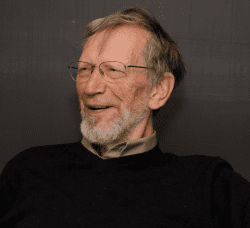
(Wikimedia Commons public domain)
In the seventies, eighties, and nineties of the last century of the previous millennium — putting it that way, quite accurate though the formulation is, makes it seem even longer ago than it actually was! — the most pressing and urgent challenges to the claims of the Restoration seemed to me to be coming from aggressive Protestant anti-Mormonism. Accordingly, especially in its first years, the FARMS Review, which I founded and edited until its 2012 demise, devoted considerable attention to materials emitted by that colorful sector of Evangelicalism.
But the heyday of that bygone era’s “counter-cult ministries” seems to me long past. And, in any event, the rise of the religious “nones” and of a naturalistic secularism seems to me now to pose by far the most urgent challenge — not merely to Latter-day Saint faith but also to other faith traditions, very much including those once complacently overconfident Evangelical Protestants — and it is a much more fundamentally important and intellectually serious one.
Among the very best writers on the subject is the prominent Christian philosopher Alvin Plantinga. And one of the books in which Professor Plantinga discusses it is his Where the Conflict Really Lies: Science, Religion, and Naturalism (Oxford: Oxford University Press, 2011), from which I here offer a couple of quotations:
Naturalism is what we could call a worldview, a sort of total way of looking at ourselves and our world. It isn’t clearly a religion: the term “religion” is vague, and naturalism falls into the vague area of its application. Still, naturalism plays many of the same roles as a religion. In particular, it gives answers to the great human questions: Is there such a person as God? How should we live? Can we look forward to life after death? What is our place in the universe? How are we related to other creatures? Naturalism gives answers here: there is no God, and it makes no sense to hope for life after death. As to our place in the grand scheme of things, we human beings are just another animal with a peculiar way of making a living. Naturalism isn’t clearly a religion, but since it plays some of the same roles as a religion, we could properly call it a quasi-religion. (ix-x)
My overall claim in this book: there is superficial conflict but deep concord between science and theistic religion, but superficial concord and deep conflict between science and naturalism. (ix, italics in original)










